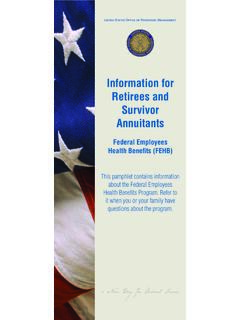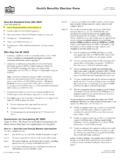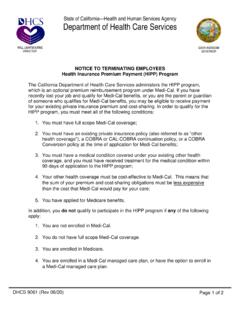Transcription of Business Interest Expense Deductibility under Section 163(j)
1 Business Interest Expense Deductibility under Section 163(j) An Introduction and the Related Consequences of the Tax Cuts and Jobs Act (TCJA)Agenda Overview General definitions and rules Excepted trades or businesses C corporations and consolidated groups Partnerships and S corporations Foreign corporations and foreign personsOverviewOverview Sec. 163(j) provides that the amount allowed as a deduction under [Chapter 1] for Business Interest Expense may not exceed the sum of: Business Interest income for a taxable year; Floor plan financing Interest for such taxable year; and 30% of "adjusted taxable income" for such taxable year. Any disallowed Business Interest is carried forward and treated as Business Interest paid or accrued in the succeeding taxable year subject to Sec. 163(j). Sec. 163(j)(2). Certain specified trades or businesses (excepted trades or businesses) are not subject to Sec. 163(j).Overview (cont.) Sec. 163(j) limits the deduction of Business Interest Expense (BIE).
2 BIE is Interest paid or accrued on indebtedness properly allocable to a trade or Business . The limitation includes Business Interest Income (BII)and Floor Plan Financing Interest (FPFI)(and Adjusted Taxable Income (ATI)). BII is Interest includible in gross income which is properly allocable to a trade or Business . FPFI is paid or accrued on debt that is: (i) used to finance the acquisition of motor vehicles held for sale or lease; and (ii) secured by the inventory so acquired. Property used in a trade or Business with FPFI is not qualified property under Sec. 168(k) if the FPFI was taken into (cont.) ATI means the taxable income of a taxpayer computed without regard to: Income, gain, deduction, or loss not properly allocable to a trade or Business ; Business Interest Expense and Business Interest income; Net operating loss deduction under Sec. 172; The deduction under Sec. 199A (for qualified Business income); and Deductions for depreciation, amortization, or depletion for taxable years beginning before Jan.
3 1, 2022. Other adjustments to ATI may be provided by the (cont.)Small Business exemption: Sec. 163(j) limitation does not apply to any taxpayer, other than a tax shelter defined in Sec. 448(d)(3), if average annual gross receipts does not exceed $25 million under Sec. 448(c). The definition of "tax shelter" under Sec. 448(d)(3) includes a "syndicate" under Sec. 1256(e)(3). Generally applies to non-C corporation entities. Over 35% of losses flow to limited partners or similar owners. This definition can apply even if no tax Considerations: Aggregation of gross receipts is required for all persons treated as a single employer under Sec. 52(a) and (b) and Sec. 414(m) and (o). The definition of a tax shelter may be a trap for the unwary for taxpayers who think the Small Business Exemption may apply. Partnerships and S corporations that qualify for the exemption may still need to provide items relevant to Sec. 163(j) to their partners and (cont.) On Nov. 26, 2018, the IRS issued proposed regulations under Sec.
4 163(j) and related provisions. The proposed regulations include (j)-1 through (j)-11 and proposed regulations under other Sections. The deadline for comments was Feb. 26, 2019. It is unknown when final regulations will be definitions and rulesInterest The proposed regulations provide a broad definition of Interest . The definition under Prop. Reg. (j)-1(b)(20) consists of: Compensation for the use or forbearance of money Includes OID, qualified stated Interest , repurchase premium , and imputed Interest . Swaps with significant non-periodic payments. Non-cleared swap with significant non-periodic payments treated as part loan. Other amounts treated as Interest . premium , substitute Interest payments, amounts from a derivative that alters the effective cost of borrowing or effective yield, certain commitment fees, debt issuance costs, guaranteed payments for the use of capital under Sec. 707(c), and factoring income. Anti-avoidance rule for Expense or loss predominantly associated with the time value of Taxable Income (ATI) ATI is defined as taxable income with adjustments.
5 For this purpose, taxable income means the definition in Sec. 63 (computed without regard to Sec. 163(j)). A deduction under Sec. 250(a)(1) is determined without regard to the taxable income limitation in Sec. 250(a)(2) and without regard to Sec. 163(j). Additional rules apply for determining ATI with respect to specific types of taxpayer ( , C corporations, RICs and REITs, S corporations, partnerships, etc.).ATI Additions to taxable income: Business Interest Expense ; Net operating loss deduction; Deduction under Sec. 199A; Deduction for capital loss carryback or carryover; Deduction or loss not properly allocable to a non-excepted trade or Business ; Excess taxable income from CFCs if there is a CFC group election; and For years beginning before Jan. 1, 2022: Depreciation under Sec. 167 or Sec. 168;* Amortization of intangibles under Sec. 167 or Sec. 197;* Other amortized expenditures (Sec. 195(b)(1)(B), 248, or 1245(a)(2)(C));* and Depletion under Sec. 611.
6 *Key Considerations:*Expenses capitalized to inventory under Sec. 263A are nota depreciation, amortization, or depletion deduction under the proposed regulations, and therefore are not an addition under the proposed (cont.) Subtractions to taxable income: Business Interest income; Floor plan financing Interest Expense ; The lesser of: (1) any gain recognized on the sale or other disposition of property; and (2) depreciation, amortization, or depletion for taxable years after Dec. 31,2017 and before Jan. 1, 2022, with respect to such property; Certain investment adjustments under Reg. attributable to depreciation, amortization, and depletion upon the sale or other disposition of the stock of a member of a consolidated group; The taxpayer's distributive share of certain deductions of depreciation, amortization, and depletion allowable under Sec. 704(d) upon the sale or other disposition of a partnership Interest ; Income or gain that is not properly allocable to a non-excepted trade or Business ; and Deemed inclusions under Sec.
7 78, Sec. 951(a), and Sec. 951A less the deduction under Sec. 250 as computed for Sec. 163(j) Considerations: Recapture provisions may operate similar to Sec. 1245, but taxpayers will need to allocate purchase price in detail to depreciable and amortizable assets. In the sale of a consolidated subsidiary, there is no look-through to the underlying to other provisions Sec. 163(j) generally applies after the application of other provisions that subject Interest Expense to disallowance, deferral, capitalization, or other limitation. However, Sec. 163(j) is applied before the application of Sec. 461(l) ( Business losses of non-corporate taxpayers), Sec. 465 (at-risk limitation), and Sec. 469 (passive activity losses). Capitalized Interest Expense under Sec. 263A and Sec. 263(g) is not Business Interest Expense for purposes of Sec. 163(j). See proposed regulations under Sec. 59A for interaction with Sec. 163(j).Anti-avoidance rule Arrangements entered into with a principal purpose of avoiding Sec.
8 163(j) or the regulations may be disregarded and re-characterized by the IRS to the extent necessary to carry out the purposes of Sec. 163(j). Prop. Reg. (j)-2(h). The anti-avoidance rule specifically references the small Business exemption but may be interpreted more date of the proposed regulations The proposed regulations are not effective until final. However, the proposed regulations provide:"taxpayers and their related parties, within the meaning of Sec. 267(b) and 707(b)(1), may apply the rules of this Sec. to a taxable year beginning after December 31, 2017, so long as the taxpayers and their related parties consistently apply the rules of the Sec. 163(j) regulations, and if applicable, , (c)(20)-1, , , , , , , , , through , (to the extent they effectuate the rules of and ), and to those taxable years." [Emphasis added].Excepted trades or businessesExcepted trades or businesses Certain specified trades or businesses (excepted trades or businesses) are not subject to Sec.
9 163(j). The term "trade or Business " does not include: Performing services as an employee; Certain regulated public utilities; and Any electing real property trade or Business or any electing farming Business . "Real Property Trade or Business " means any real property, development, redevelopment, construction, reconstruction, acquisition, conversion , rental, operation, management, leasing, or brokerage trade or Business (Sec. 469(c)(7)).Real property trade or Business Proposed regulations under Sec. 469 provide definitions for: (i) real property operation; and (ii) real property management. The principal purpose must be the provision of the use of real property or physical space to one or more customers; and The principal purpose must not be the provision of other significant or extraordinary personal services to customers in conjunction with the customers' incidental use of the real property or physical space. Other definitions of real property trades or businesses are reserved under the proposed for excepted trades or businesses The proposed regulations provide rules and procedures for the election for excepted real property trades or businesses or farming businesses.
10 The election is generally irrevocable. There is a safe-harbor for the eligibility of certain REITs that hold real property for the election for a excepted real property trade or Business . A real property trade or Business is not eligible for an election if at least 80% of the Business 's real property is leased to a trade or Business that is under common control. Exception for the eligibility of certain to an excepted trade or Business The proposed regulations provide exclusive rules for allocating tax items between excepted trades or businesses and non-excepted trades or businesses. Interest Expense that is properly allocable to excepted trades or businesses is not subject to Sec. 163(j). Other items that are properly allocable to excepted trades or businesses are excluded from the calculation of the taxpayer's Sec. 163(j) limitation. Property used in an excepted trade or Business is not qualified property under Sec. 168(k) for bonus depreciation (Sec. 168(k)(9)).















